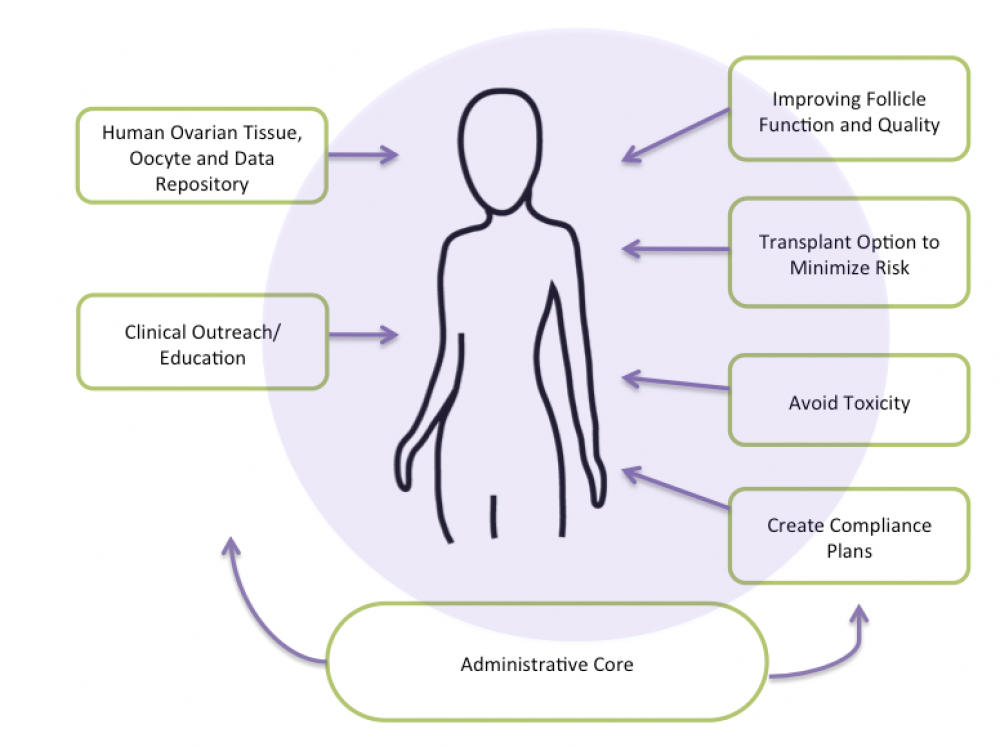Center for Reproductive Health After Disease
 Many young men, women, and children have non-malignant conditions or must undergo treatment with drugs or procedures that can damage their reproductive function. The Center for Reproductive Health After Disease extends the overall scope of the Oncofertility Consortium to ensure that these individuals are provided options for protecting their reproductive health and that providers are aware of the threat posed by specific diseases and treatments on reproductive function. Moreover, our Center is not limited to the preservation of fertility but will also address the long-term endocrine health of individuals who lose gonadal function.
Many young men, women, and children have non-malignant conditions or must undergo treatment with drugs or procedures that can damage their reproductive function. The Center for Reproductive Health After Disease extends the overall scope of the Oncofertility Consortium to ensure that these individuals are provided options for protecting their reproductive health and that providers are aware of the threat posed by specific diseases and treatments on reproductive function. Moreover, our Center is not limited to the preservation of fertility but will also address the long-term endocrine health of individuals who lose gonadal function.
By assembling a diverse, cross-disciplinary team of investigators, the Center pursues both basic scientific research and clinical research goals, as well as creates and implements educational and community outreach initiatives to share the Center’s findings with providers, patients, their families, and the public. Research includes:
- New techniques for producing healthy, mature oocytes from the pool of immature oocytes in ovarian tissue banked by young cancer patients.
- The cellular mechanisms that might be targeted to protect eggs from the damaging effects of radiation and chemotherapy; this work is particularly important for preserving endocrine health in older women.
- Clinical research to determine to what extent fertility concerns affect the medical decision-making process of patients.
With an expanded scope, a team-based approach to problem solving, and the goal of preserving not only fertility, but all aspects of reproductive health, our Center has the potential to impact the lives of many young men, women, and children who are at risk of disease-related or iatrogenic infertility and endocrine dysfunction.
To learn more about the Center for Reproductive Health After Disease core activities, please click on the links below:
This research is funded by the National Institutes of Health, Grant P50HD076188.

